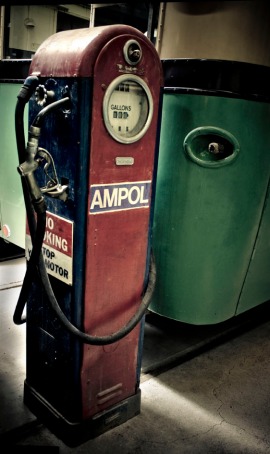One of the terribly tricky questions in this ol’ world of ours is how to sustain a species that likes to extract toxic crude oil from the ground and use it in a way that’s disturbingly damaging to the environment they live in.
But imagine how much closer we would be to a renewable energy revolution if instead of sucking fossil fuel out of the earth, there was an alternative way to satisfy our need for fuel.
Enter: microbes.
We’ve already created genetically engineered bacteria that produce diesel, but not our favourite fuel, petrol. The difficulty lies in convincing bacteria to produce the short-chain hydrocarbons that form part of the petrol cocktail, since they much prefer making longer chains.
Researchers in South Korea have now addressed this issue by creating two new strains of Escherichia coli bacteria. After engineering in lots of additional genetic hardware – including DNA from Clostridium, Arabidopsis and Acinetobacter species – they substantially bumped E.coli’s capacity to produce short-chain hydrocarbons.
The first strain, Gas-2, produces a steady stream of short-chain free fatty acids, which are intermediate products in the petrol creation process, while the second strain, Gas-3, churns out short-chain hydrocarbons (i.e. petrol) at a rate of 580 milligrams per litre.
This work represents an excellent new starter platform for the sustainable production of biofuels.
Choi YJ, & Lee SY (2013). Microbial production of short-chain alkanes. Nature, 502 (7472), 571-4 PMID: 24077097






Great reading youur blog post